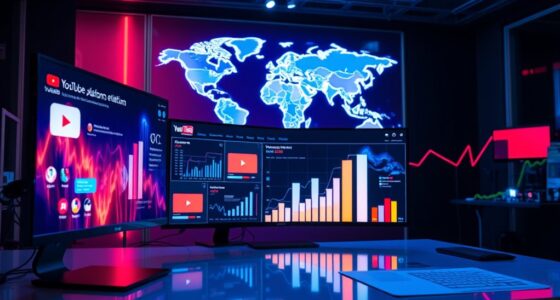With falling album sales, fewer touring opportunities, and a rise in streaming revenue, artists’ earnings have been steadily dropping, but fans are hungry for interaction and desire a more personal connection with their favorite musicians.
The current business model of the music industry is broken. Musicians make the majority of their money from touring, and with the pandemic putting a halt to live shows, many artists are struggling to make ends meet. In addition, streaming services like Spotify pay very low royalties, often leaving artists in debt to their record labels.
It was a show put on by artists, gamers, Game Producers, YouTubers, and gamers Markiplier in the game. The idea of having celebrities or anyone for that matter appear inside video games is not new, but what’s interesting to me about this particular performance is how it blurs the lines between reality and fiction.
Marshmello Concert in Fortnite’s Pleasant Park
The use of video game environments as concert venues is an innovative way to engage with audiences and bring them together in a shared virtual space. The concert by Marshmello in Fortnite’s Pleasant Park was a groundbreaking event that demonstrated the potential of this new medium.
Not only did it attract a huge audience of more than 10 million people, but it also allowed them to interact with the environment in a variety of ways. This type of event has the potential to revolutionize the music industry, and it will be interesting to see how it develops in the future.
Travis Scott Concert in Fortnite
In the wake of the pandemic, Epic Games has continued to collaborate with high-profile artists in order to bring unique experiences to their players. In April 2020, they partnered with Travis Scott for a virtual concert that drew in 28 million viewers.
This was shortly followed by a collab with J Balvin in October. These partnerships have helped Epic to maintain its position as a leader in the gaming industry, and they have also provided valuable exposure for the artists involved. Ticket searches for Scott’s concert increased by 419%, and his social media following grew by 1.8 million. Similarly, Balvin’s collab resulted in a significant increase in search traffic and social media engagement. These partnerships have proven to be highly successful for both Epic and the artist.
Buzz Around the Metaverse
Music has always been intertwined with gaming, from the 8-bit anthems of early console games to the licensed soundtracks of today’s blockbusters. However, the recent rise of the metaverse – a virtual world where users can interact with each other and digital content in a realistic way – has created new opportunities for music creators and investors alike.
With the metaverse set to grow exponentially in the coming years, record labels and musicians are scrambling to figure out their role in this new virtual landscape. One potentially game-changing development is the rise of NFTs, which promise decentralized, certified digital ownership of digital assets.
This could allow artists and labels to create and sell virtual goods in a way that is not locked into any specific game, console, or platform. Artists and labels are now confronted with a radically new economic and creative virtual reality.
Non-Fungible Tokens, or NFTs
Non-fungible tokens, or NFTs, have been getting a lot of attention lately as a new way for artists to monetize their work. By creating a digital token that represents ownership of a piece of digital art, musicians can sell access to exclusive tracks, digital merch or even VIP experiences.
And because NFTs are stored in a crypto wallet, the owner can easily prove their ownership and share it with others. This transparency and ease of use are one of the main appealing factors of NFTs for both artists and fans.
As the technology continues to evolve, it’s likely that we’ll see even more innovative ways for musicians to use NFTs to connect with their fans and create new revenue streams.
NFTs are a new and exciting way to own digital art. Unlike traditional digital art, NFTs are stored on the blockchain, which provides a record of ownership and verification that the art is genuine.
Re-Sale NFTs
Additionally, NFTs can often be re-sold, which provides an incentive for owners to participate in an artist’s work and community. This can help to sustain and increase the value of an NFT over time. As a result, NFTs offer a unique and valuable way to own and invest in digital art.
NFTs have the potential to revolutionize the concert industry, giving artists a new way to engage with their fans and generate revenue. Through their concerts, virtual artists could offer a range of NFTs, from free tokens that reward attendance to high-valued NFTs that could grant you meet-and-greets with the artist themselves.
Although NFTs didn’t invent meet-and-greets, it’s the verifiable, decentralized, re-sellable nature that theoretically creates a new economy around an artist and their fans. In this new economy, artists would have more control over their careers, and fans would have more ways to show their support.
Ultimately, NFTs could help to make the artist participate in a new economy created around the artist and their fans.
Is it Accessible?
As the world increasingly moves online, there is a growing need for virtual spaces where people can interact and connect with one another. The metaverse is a proposed solution to this need, providing a 3D virtual world that would be open and accessible to everyone. However, some have raised concerns about whether the metaverse will be truly inclusive.
One worry is that only those with the resources to design and build their own virtual worlds will be able to participate fully in the metaverse. This could create a two-tiered system, with the rich and famous having exclusive access to the best and most popular virtual spaces, while the rest of us are relegated to second-class citizen status.
Another concern is that the same algorithms that currently control what we see on social media will also be used to control what we see in the metaverse.
This could lead to a situation where only certain perspectives are represented, and alternative viewpoints are censored. While these are valid concerns, it’s important to remember that the metaverse is still in its early stages of development.
Rise of Social Media
The rise of social media has been a boon for many artists, giving them a direct connection to their fans that were previously impossible. However, it has also created a number of problems, chief among them the fact that billion-dollar platforms like Facebook have their own interests at heart, and often prioritize those interests over the needs of artists.
This can make it difficult for artists to be seen by their fans and can result in a battle against an opaque algorithm in order to gain any visibility. Given that it is Facebook – now Meta – that is leading the charge for widespread adoption of the metaverse, it is fair to be skeptical about whether or not this new utopia will offer the direct-to-fan experience that some are championing it for.
As society increasingly moves online, the question of who has access to the virtual world becomes more pressing. The metaverse, a concept popularized by science fiction writer Neal Stephenson, refers to a shared virtual space where users can interact with each other and with digital content.
While the idea of the metaverse has long been confined to the realm of science fiction, recent advances in technology have made it a reality. However, not everyone has equal access to this new virtual world. The metaverse is still in its early stages, and it remains to be seen whether it will live up to its promise of parity.
Only time will tell whether the metaverse will be a utopia for all or just another exclusive playground for the rich and famous.
Create Your Own Digital World
In the Metaverse, players can create their own digital world in which they can interact with others. This virtual world can be used for socializing, gaming, or even business purposes. One of the unique features of the Metaverse is that users can often build and import digital goods, such as NFTs. This allows for a great deal of creativity and customization, as well as the ability to trade these goods with other users. The Metaverse provides a unique and exciting way to interact with others online, and its popularity is only expected to grow in the future.
Old Business Problem
Tired of the same old business problems? Well, the metaverse is here to help! The metaverse is a new way of doing business that is quickly gaining popularity. It uses virtual reality technology to create a virtual world that is realistic and interactive. This new business model has the potential to address many of the pressing issues facing businesses today.
For example, the metaverse can help businesses to reduce costs, increase efficiency, and improve communication. In addition, the metaverse can also help businesses to create more immersive and engaging customer experiences.
As the metaverse continues to evolve, it is likely to have an even bigger impact on businesses. So if you are looking for a new way to do business, be sure to check out the metaverse!

Metaverse Music, Virtual Concerts, Merchandise
As the world increasingly moves online, a new virtual world is emerging: the metaverse. The metaverse is a new, digitally-created space where users can interact with each other and with artificial intelligence in a variety of ways. For artists, the metaverse provides a unique opportunity to connect with their fans in a completely new way.
Virtual concerts, merchandise sales, and other in-game or app-integrated activities allow artists to reach their fans wherever they are in the world. And because the metaverse is still in its early stages of development, there are endless possibilities for what it can become. With its potential for global reach and engaging content, the metaverse is poised to become the next big thing in the world of online entertainmen.
It becomes difficult to determine where one ends and the other begins.
This type of technology will continue to evolve and become more common as time goes on. We are already seeing signs of it in popular culture with shows like Westworld and Black Mirror.
These types of entertainment will only become more prevalent in the future as we move further into a digital age. What does this mean for our society? Only time will tell!
Metaverse is a decentralized virtual world built on blockchain technology. In Metaverse, users can own their data and identities and use digital assets to represent real-world value. Metaverse is also home to a variety of businesses and organizations that are using blockchain technology to solve pressing issues faced by artists today. For example, one business is using Metaverse to help musicians get paid fairly for their work.
Another is using Metaverse to help artists create dApp-based art galleries that cannot be censored or taken down. And still, another is using Metaverse to help artists protect their copyright and ensure that they receive royalties for their work. By leveraging the power of blockchain technology, businesses in the Metaverse are providing artists with new and innovative ways to earn a living.
As the Metaverse continues to grow, it is quickly becoming a hub for businesses and organizations that are using blockchain technology to solve real-world problems.
Conclusion
The metaverse is a new way of doing business that is quickly gaining popularity. It uses virtual reality technology to create a virtual world that is realistic and interactive. This new business model has the potential to address many of the pressing issues facing businesses today.
For example, the metaverse can help businesses to reduce costs, increase efficiency, and improve communication. In addition, the metaverse can also help businesses to create more immersive and engaging customer experiences.
As the metaverse continues to evolve, it is likely to have an even bigger impact on businesses. So if you are looking for a new way to do business, be sure to check out the metaverse!
Learn more here: Fortnite’s and ABBA’s Virtual Concert as a Proof that Art Is Digital










